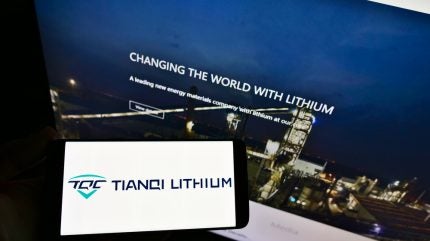
Chinese lithium production company Tianqi Lithium has recorded its first H1 loss since 2020, citing a huge global price decrease of lithium as the factor.
Tianqi registered a net loss of 5.2bn yuan for H1 2024, down from a profit of 6.45bn in the same period in 2023.
A global over-supply of lithium has led to slower-than-expected demand from electric vehicle manufacturers, subsequently shifting spot carbonate and spodumene prices to the lowest in three years.
The global price decrease of the raw material has squeezed lithium production, forcing some companies to rethink extension plans and reduce spending to weather the downturn in price.
Tianqi said it has changed from a quarterly pricing formula to one that is monthly for spodumene concentrate from its Talison project in Australia.
The adjustment was made in January and aims to reduce “the adverse impact” from the discrepancy between the different pricing cycles and spot market price.
With operations in China, Australia and Chile, Tianqi predicts the lithium market will improve within the next few years and has committed to working with top mining companies to explore new resource opportunities.
Speeding up domestic resources is also a priority for Tianqi.
Whilst having to operate in an extremely volatile lithium market, the company has had to overcome geopolitical and regulatory changes that have been put in place by governments to safeguard access to lithium resources.
Tianqi has recently been involved in tensions with SQM, despite the Chinese company holding a 22% stake in the company, after calling for the proposed joint venture (JV) between Codelco and SQM to be subject to a shareholder vote.
Chilean financial regulator the CMF ruled that the partnership between state-owned Codelco and SQM did not require a shareholder vote. Since this decision Tianqi filed an appeal to a court in Chile in attempt to secure the vote.
The collaboration is set to grant Codelco a 50% plus one share stake in the JV, significantly enhancing the state’s involvement in lithium production, and is expected to enable SQM to increase its output of lithium.
Chile would be recognised as the world’s second-largest lithium producer if the partnership is successful.



